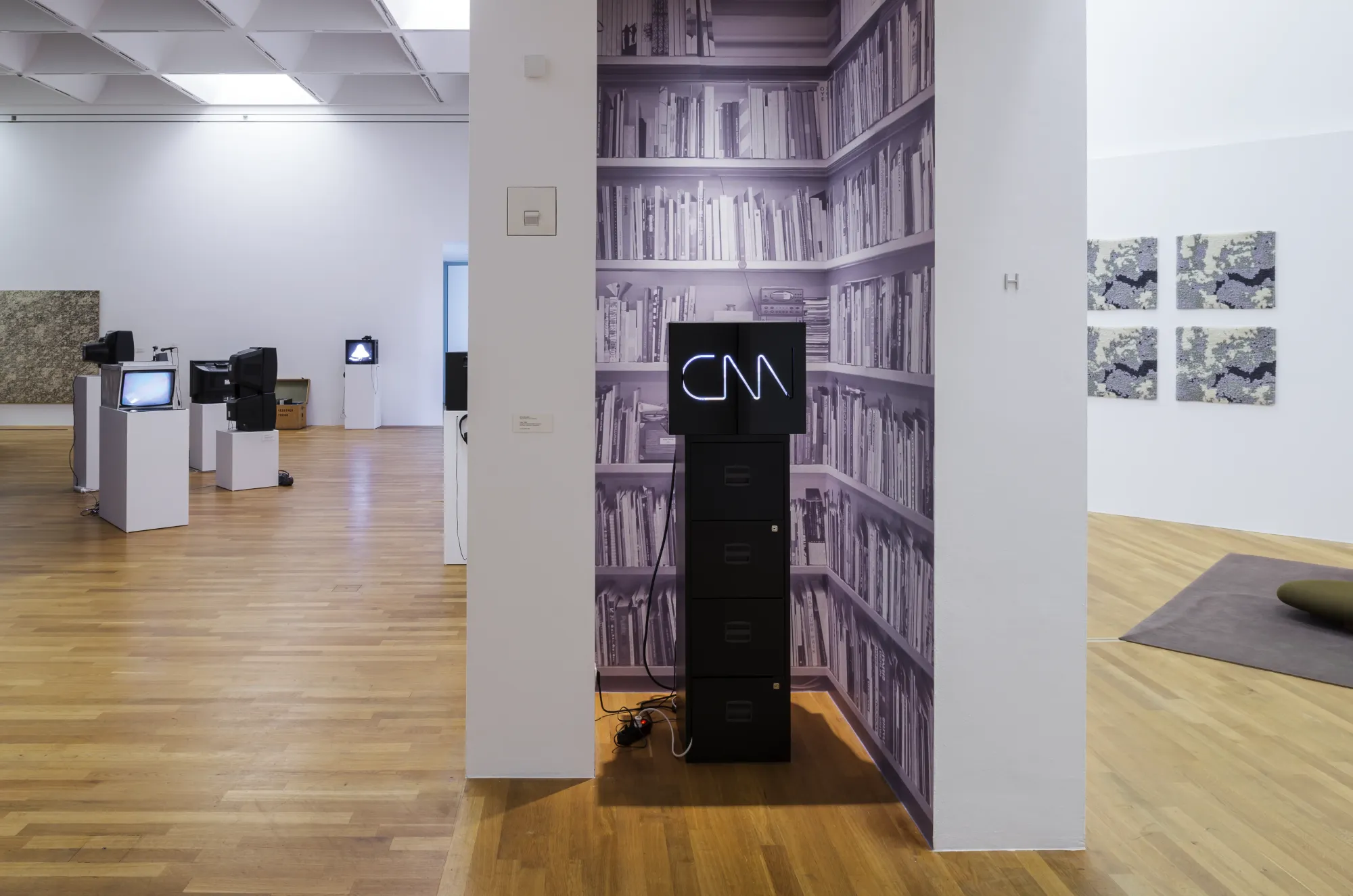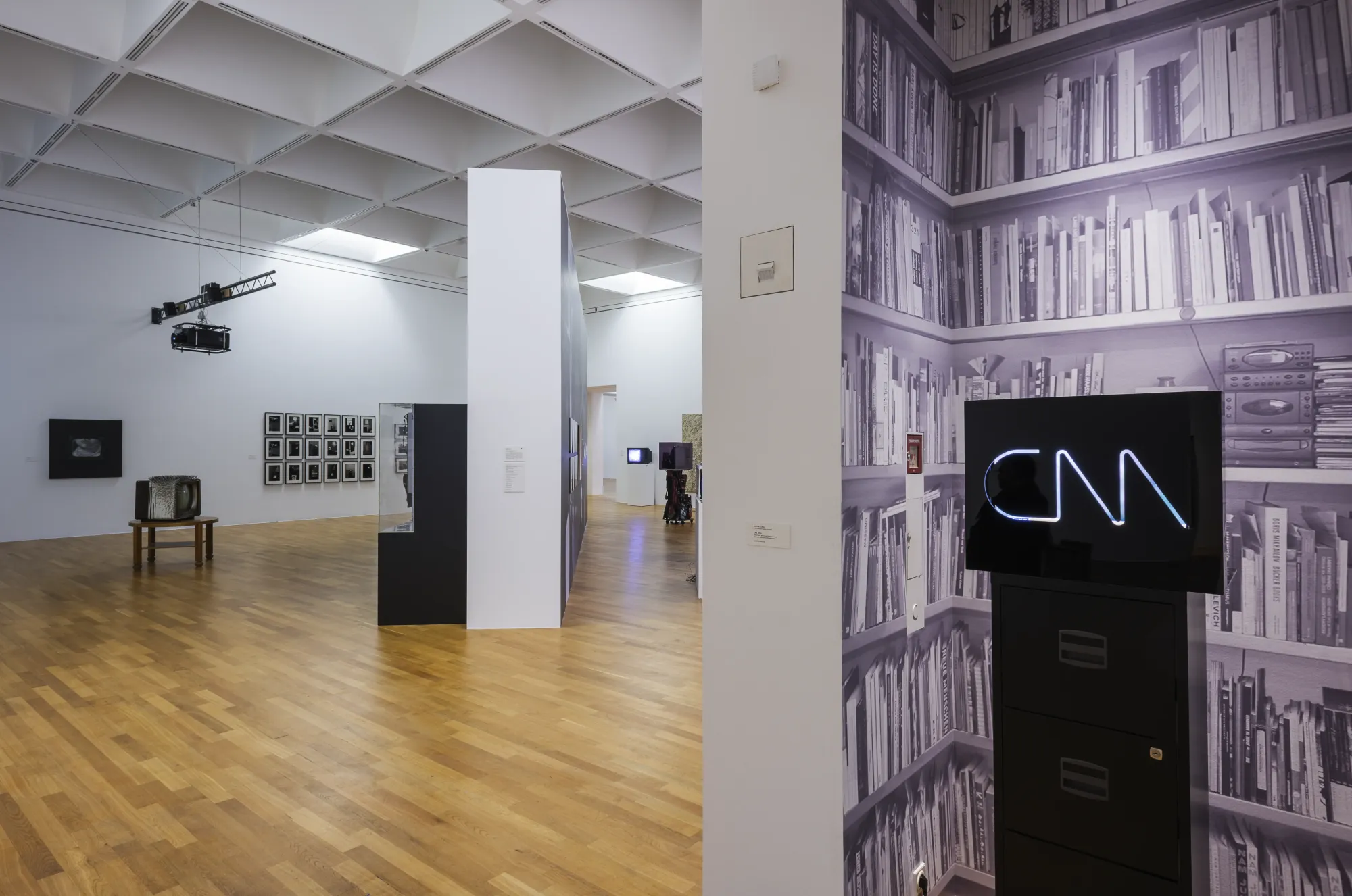CNN
2009

Photo: David Ertl

Photo: David Ertl
CNN began broadcasting 24-hour news in 1980, the first channel in the world to do so. The then-new broadcasting format switched the flow of information to continuous. It relied on live broadcasts and real-time coverage of world events and politics. CNN launched formats of immediacy and simultaneity that promised a greater degree of information, education, and objectivity. The station gained worldwide recognition especially after the Gulf War in 1991, when, as they say, the war became a media event. The chaos of the crisis areas and military interventions could be followed in living rooms thanks to satellite technology and, not least, cooperation with the military. The channel made the state of emergency part of everyday life. CNN has shaped the transnational iconography of war reporting like no other channel and has become synonymous with a Western view of political events. For this very reason, CNN is extremely suspect and is the target of media skepticism and hostility.
Mischa Kuball's work deals with this critique of representation. A television set playing the CNN live stream is placed on top of a steel filing cabinet. The screen is covered with a black Plexiglas panel engraved with the channel's iconic logo. The work is presented in a niche lined with photo wallpaper depicting a wall of shelves. The program can only be guessed at through this template, but the lettering inevitably evokes certain visual impressions. A drawer in the cabinet contains an audio system that plays several of the station's podcasts layered on top of each other. Thus, visual and auditory information can only be perceived in fragments—on the one hand through censorship, on the other through an unfocused excess of information. The formal, administrative, and clinical simplicity of the sculpture contrasts with the chaos that can be sensed. The work thus addresses the increased flood of information and the problem of its channeling and standardization along corporate identity lines. It points to the ethical imbalance between political complexity and its standardization by the media industry.
Baptist Ohrtmann